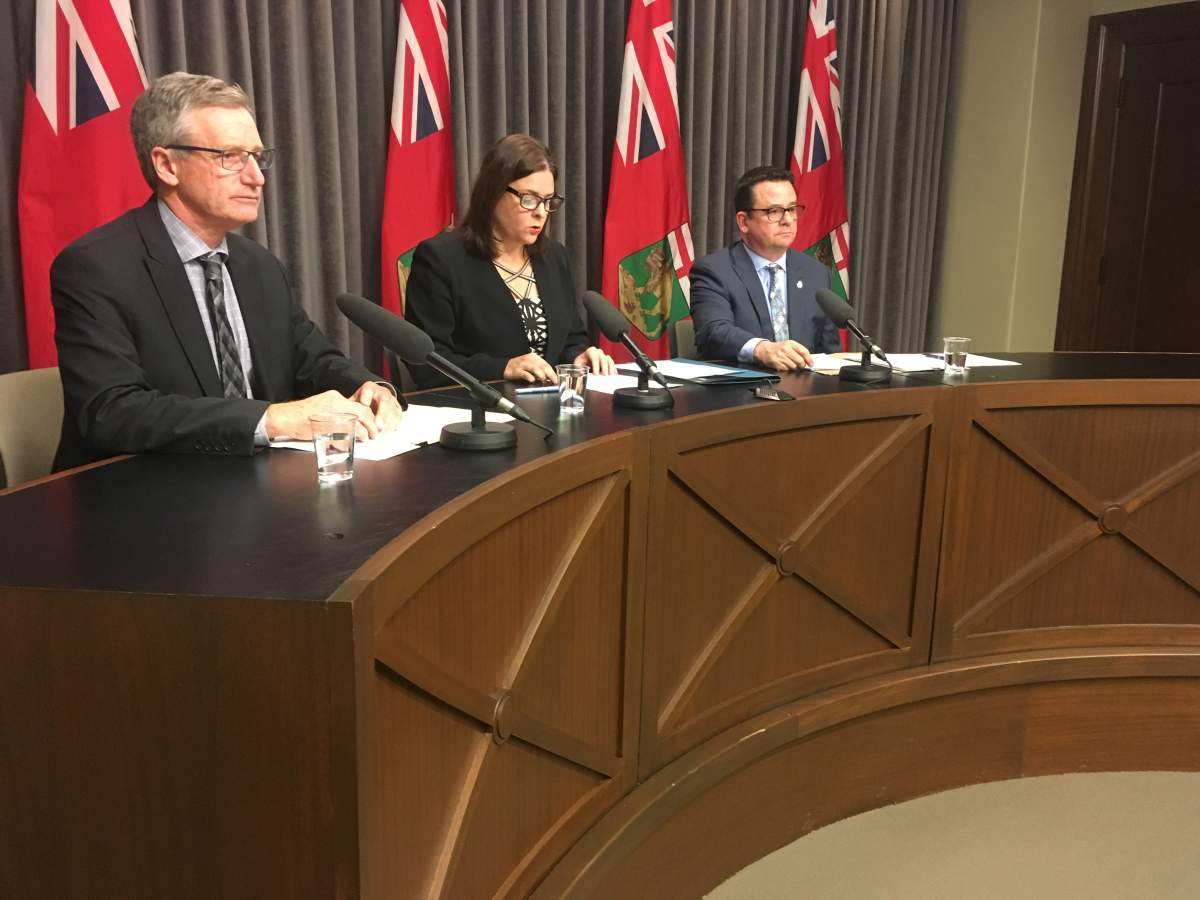Manitoba has released information surrounding phase two of cannabis legalization.

The province has decided to make 19 the legal age to purchase marijuana, one year later than the legal drinking age, which is 18.
“We know that there’s research out there, that there’s evidence out there, that says this is harmful to the brains of young Manitobans, young Canadians, young people in general,” Justice Minister Heather Stefanson said Tuesday.
“If you chose an age of 25 or 21, you’re potentially driving people towards the gangs or the elicit market, so we believe this is a balanced approach that shows that we care about our young people. We’re putting their health and safety first while trying to keep it out of the hands of gangs.”
The province detailed the age Tuesday during its Safe and Responsible Retailing of Cannabis Act news conference The act would amend the Liquor and Gaming Control Act and The Manitoba Liquor and Lotteries Control Act. The Liquor and Gaming Authority would also be renamed the Liquor, Gaming and Cannabis Authority.
It will be an offence to sell marijuana to underage consumers, and for underage consumers to possess marijuana.

Get weekly health news
READ MORE: Legalization of marijuana unlikely to kill Canada’s black market right away
The regulations are similar to current liquor framework in the province.
A head-turning announcement released Tuesday is that Manitobans won’t be able to grow marijuana at home without a medical license.
“Our government will prohibit growing cannabis at home for recreational purposes. This approach is consistent with our commitment to protect youth and also responds directly to the concerns that home grown cannabis may be diverted to the black market,” Stefanson said.
Retailers will take the form of either age restricted stores or controlled access stores, where other goods are present but where weed is not visible or accessible.
Selling marijuana without a license or selling cannabis from an unlicensed producer could cost you up to $100,000 or a year in jail, or $500,000 if a corporation is found guilty of the offence.
Providing fake IDs to teens or using fake IDs to buy marijuana will be illegal, as will selling marijuana to an intoxicated person.
The maximum amount for possession is 30 grams, which is a federal limit.
Licensed cannabis retailers with physical storefronts will also be allowed to retail their product online and must be licensed by the province.
Online pot shoppers will have to prove age prior to purchasing and sign for their deliveries, and whoever signs for the package will have to be 19 or older.
READ MORE: Federal government willing to give more pot tax revenue to provinces to help municipalities
Again, municipalities hold the reins when it comes to deciding whether or not to prohibit cannabis sales in their communities, and given the right timeline, they will be able to hold plebiscites on the issue until January 2022.
Notably absent from the bill was the presence of any rules around edibles, as legislation on the sale of edibles is expected to come into play within a year of legalization.
READ MORE: Pot to be sold from private retail locations in Manitoba, supply handled by Liquor and Lotteries
The province unveiled the first part of their pot plan in early November, announcing that the private industry will handle sales in the province, while the public sector – namely The Manitoba Liquor and Lotteries Corporation – will control distribution.
- This H3N2 flu strain is spreading ‘rapidly.’ Why subclade K is hitting hard
- U.S. may soon reclassify marijuana to allow medical research. What to know
- EU proposal would ease cross-border abortion access for women facing bans
- Ontario influenza ICU admissions up 127% in past week, hospital association warns








Comments